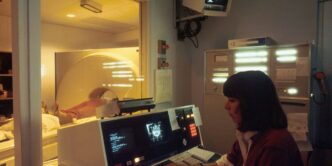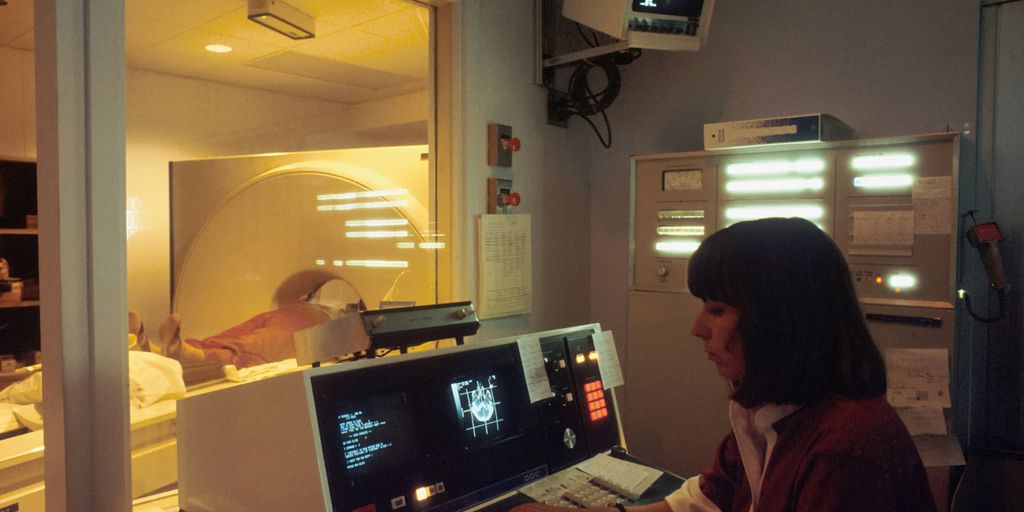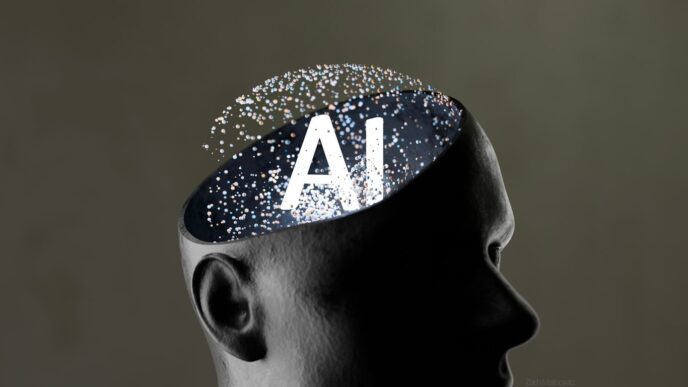It’s pretty exciting to see how technology is changing healthcare. Athelas is teaming up with Resilient Healthcare, and it looks like a big deal for how we do things, especially with care at home. They’re bringing together electronic medical records and smart AI to make things run smoother for both patients and the people taking care of them. This partnership is all about making healthcare more efficient and accessible, right where people live.
Key Takeaways
- Athelas EMR is partnering with Resilient Healthcare to improve outpatient and home-based care.
- The collaboration focuses on using AI technology to make healthcare operations more efficient.
- Athelas Scribe AI is improving medical documentation, cutting down intake time significantly.
- This partnership aims to set new standards for integrated healthcare by combining advanced EMR and AI solutions.
- The goal is to make care delivery more effective and improve patient results through technology.
Athelas EMR Partnership with Resilient Healthcare
This past February, Athelas announced a pretty big deal with Resilient Healthcare Corp. Resilient is known for its work in bringing healthcare right to people’s homes, which is a pretty neat idea. They picked Athelas to handle their Electronic Medical Records (EMR) and help with billing, which is called Revenue Cycle Management or RCM. This partnership is all about making things smoother for Resilient’s hospital-at-home programs.
Revolutionizing Outpatient Care and Billing
Basically, the goal here is to make outpatient services and the whole billing process less of a headache for hospitals. Instead of everything being stuck in the old, traditional hospital systems, this partnership aims to move that work to a more efficient setup. Think of it like this: Resilient Healthcare is good at the home-care part, and Athelas brings the tech to manage the records and payments that come with it. They’re starting with a pilot program to test how well this works, focusing on moving outpatient services and billing away from standard hospital setups.
Streamlining Health-at-Home Operations
Resilient Healthcare is all about providing care in the comfort of a patient’s home. To do that well, they need their back-end operations, like managing patient information and getting paid, to be top-notch. By teaming up with Athelas, they’re looking to simplify how they manage everything. This includes using Athelas’ Ambient AI to help out and integrating their EMR system with Resilient’s own AI platform, called RAIN. The idea is to make the day-to-day running of these home-care services much easier and more organized.
Seamless Integration and Scalability
One of the key parts of this partnership is making sure the technology works well together and can grow as Resilient Healthcare expands. They want a system that can handle more patients and more hospitals without falling apart. The agreement is set up so that as Resilient takes on new hospital clients, the Athelas technology can keep up. This means consistent service delivery and making sure everything stays compliant with healthcare rules, no matter how big they get.
Integrated AI Technology in Healthcare

Artificial intelligence is really starting to change things in the medical world. It’s not just about fancy gadgets anymore; it’s about making everyday tasks smoother and giving doctors and nurses more time to actually focus on patients. Think about how much time is spent just getting patient information into the system. It’s a lot. Athelas is tackling this head-on with their AI solutions.
Ambient AI Support for Enhanced Efficiency
One of the big areas AI is helping with is ambient support. This means the AI is working in the background, listening and processing information during patient visits. It can automatically document conversations, pull up relevant patient history, and even suggest next steps. This takes a huge chunk of administrative work off the plate of healthcare providers. Instead of typing notes for hours, they can be present with the patient. It’s like having a really good assistant who never gets tired. This kind of support can really speed things up, making patient intake, for example, go from taking 44 minutes down to just 4 minutes. That’s an 11-fold improvement!
AI-Driven Solutions for Patient Care
Beyond just documentation, AI is being used to directly improve patient care. This can involve analyzing patient data to identify potential risks or predict how a patient might respond to certain treatments. For instance, AI can sift through vast amounts of medical literature and patient records to find patterns that a human might miss. This helps in creating more personalized treatment plans. It’s also being used to streamline operations, like managing appointments or coordinating care between different specialists. The goal is to make the whole process more efficient and effective for everyone involved, from the patient to the provider. Exploring the opportunities and challenges of using AI in health technology assessment is an important step in this evolution [6feb].
Empowering Healthcare Teams with Advanced Tools
Ultimately, this technology is about giving healthcare professionals better tools. When AI handles the repetitive and time-consuming tasks, doctors and nurses are freed up to do what they do best: care for people. This can lead to less burnout and more job satisfaction. It also means that health systems can handle more patients without necessarily needing to hire more staff, which is a big deal given current workforce challenges. The systems are designed to be adaptable, too. Health systems can tailor the AI to their specific needs, making sure it fits their workflow perfectly. This makes the technology more useful and less of a burden. It’s a way to make sure that care is not only more efficient but also more accurate and consistent.
Transforming Patient Care Delivery
Bringing healthcare right to people’s doors is changing things in a big way. It means folks don’t always have to go to a clinic or hospital for certain types of care, like physical therapy or even some primary check-ups. This shift is all about making healthcare more accessible and convenient.
The goal is to get care to where the patient is, making the whole process smoother for everyone involved.
Here’s how this approach is making a difference:
- Better Access: Patients, especially those with mobility issues or who live far from facilities, can get the treatment they need without the usual travel hassle. This is a pretty big deal for many.
- More Comfort: Receiving care in your own home is generally more comfortable and less stressful than being in a clinical setting. It can really help with recovery.
- Streamlined Operations: For healthcare providers, managing care at home can actually be more efficient. It cuts down on overhead costs associated with large facilities and can help manage patient flow better.
This move towards home-based care, supported by smart technology, is really about improving how patients experience healthcare and making sure they get the best possible results from their treatment.
Athelas Scribe AI for Documentation
Documentation in healthcare can feel like a never-ending task, right? Especially when you’re trying to get patient information into the system accurately and quickly. That’s where Athelas Scribe AI comes in. It’s designed to really change how we handle things like patient intake and general medical notes.
Transforming Clinical Intake Processes
Getting a patient’s history into their electronic health record (EHR) used to take ages. Think hours of manual work, sifting through different documents, and trying to make sense of it all. This often led to missing details, which is a big problem. Studies show that about 15% of outpatient visits have key clinical information missing, often because the intake process is just too clunky. This can be due to staff being stretched thin, different software not talking to each other, or just simple human error.
Athelas Scribe AI tackles this head-on. You send in the patient records, no matter the format, and Scribe AI processes them. What used to take hours of review can now be done in just minutes. The system is built to handle all sorts of document styles, making sure important details aren’t overlooked. It’s like having a super-efficient assistant that can read and organize information at lightning speed.
Boosting Efficiency in Medical Documentation
Let’s talk numbers. Traditionally, getting a patient’s intake done could average around 44 minutes per patient. With Athelas Scribe, that same comprehensive review is now happening in about 4 minutes. That’s an 11-fold increase in speed! This kind of efficiency boost doesn’t just save time; it also cuts down on costs significantly. We’re seeing cost reductions of up to 21 times in clinical intake expenses. This frees up nurses and other clinical staff to focus on what really matters: patient care. Instead of being bogged down by paperwork, they can attend to patients or work on new initiatives.
Here’s a look at how the process generally works:
- Patient records arrive at the health system.
- Athelas Scribe AI takes these records, regardless of their format.
- The AI rapidly reviews the patient’s medical history.
- The clinical team then reviews the AI-generated intake data.
- Finally, the data is standardized and synced directly into the EHR.
Ensuring Accuracy and HIPAA Compliance
Accuracy is a big deal in healthcare, and Athelas Scribe AI is built with that in mind. The system allows for quick double-checks, showing exactly where information was pulled from. This helps make sure everything is correct. Plus, all the processing happens in a secure environment that meets HIPAA requirements, so patient data is protected. The AI can even be customized to fit a specific health system’s needs, whether it’s about pulling certain types of information or formatting it in a particular way. Deployment is also pretty straightforward, usually taking about three weeks from the initial meeting to going live, with ongoing support provided to keep the AI running smoothly.
The Future of Integrated Healthcare Solutions
Looking ahead, the combination of Athelas’s technology with partners like Resilient Healthcare really sets a new direction for how medical services can work. It’s about making things work better, not just for the people providing care, but for the patients too. This partnership is built to grow as Resilient Healthcare expands, meaning the way they handle services and follow rules should stay steady.
Setting New Standards with Combined Technologies
When you put together advanced EMR systems and smart billing tools with a company focused on home healthcare, you get something pretty different from the old way of doing things. It means less paperwork getting in the way and more time for actual patient care. Think about it: instead of a patient having to go to a clinic for a check-up and then deal with separate bills, all of that can be managed more smoothly. This integration helps make sure that when care moves to the home, the administrative side keeps up just as well.
Adapting and Scaling with Healthcare Expansion
One of the big pluses here is that the systems are designed to grow. As Resilient Healthcare starts working with more hospitals or in new areas, the Athelas platform can expand with them. This isn’t a one-off setup; it’s meant to handle more volume and more locations without breaking. This flexibility is key because the healthcare landscape is always changing, and being able to adapt quickly is a big deal.
Ensuring Consistent Service Delivery and Compliance
With any new way of doing healthcare, making sure everyone gets the same level of service and that all the rules are followed is super important. By using integrated systems, there’s a better chance that processes stay the same, no matter where the patient is or which hospital is involved. This consistency helps avoid mistakes and makes sure that patient data is handled correctly, which is a must in healthcare. It means that whether care is happening in a hospital room or a patient’s living room, the quality and the rules stay the same.
Looking Ahead
So, what does all this mean for the future of healthcare? It looks like Athelas, with its smart AI tools, is really changing the game, especially when it comes to taking care of people at home. Partnering with companies like Resilient Healthcare shows they’re serious about making things work better for both patients and the people taking care of them. It’s about making the complicated parts of healthcare simpler, so doctors and nurses can spend more time actually helping people. This kind of tech integration is what we’ll likely see more of as healthcare keeps evolving. It’s a big step towards making care more efficient and accessible for everyone.
Frequently Asked Questions
What is Athelas and who are they partnering with?
Athelas is a company that makes special computer programs for doctors and hospitals. These programs help manage patient information and handle billing. They are partnering with Resilient Healthcare, which is known for providing medical care in people’s homes. Together, they are testing new ways to make healthcare better, especially for patients who receive care at home.
How does AI play a role in this partnership?
This partnership is all about using new technology, like Artificial Intelligence (AI), to make healthcare smoother and more efficient. Think of AI as a smart helper that can do tasks quickly, like organizing patient information or helping doctors with paperwork. This means doctors and nurses can spend more time actually caring for patients.
What does ‘health-at-home’ mean in this context?
The main goal is to bring more medical care directly to people’s homes. This is often more comfortable for patients and can help hospitals run better. By using Athelas’s technology, they can manage the billing and records for this ‘hospital-at-home’ care more easily.
What is Athelas Scribe AI and what does it do?
Athelas has a tool called Athelas Scribe AI. It’s designed to help doctors and nurses with writing notes and records. It can take a lot of information about a patient and organize it very quickly, saving a lot of time compared to doing it all by hand. This helps make sure all the important details are captured accurately.
How will this partnership help healthcare systems grow and stay compliant?
This partnership aims to make healthcare services more flexible and easier to grow. As Resilient Healthcare works with more hospitals, the technology they are using can easily be expanded. This ensures that the quality of care and the rules for handling medical information are followed consistently, no matter how much they grow.
How does this improve patient care and help healthcare teams?
By using AI and better computer systems, doctors and nurses can reduce the time they spend on paperwork and organizing information. This allows them to focus more on talking with patients, understanding their needs, and providing the best possible care. It’s about making healthcare more personal and effective.












